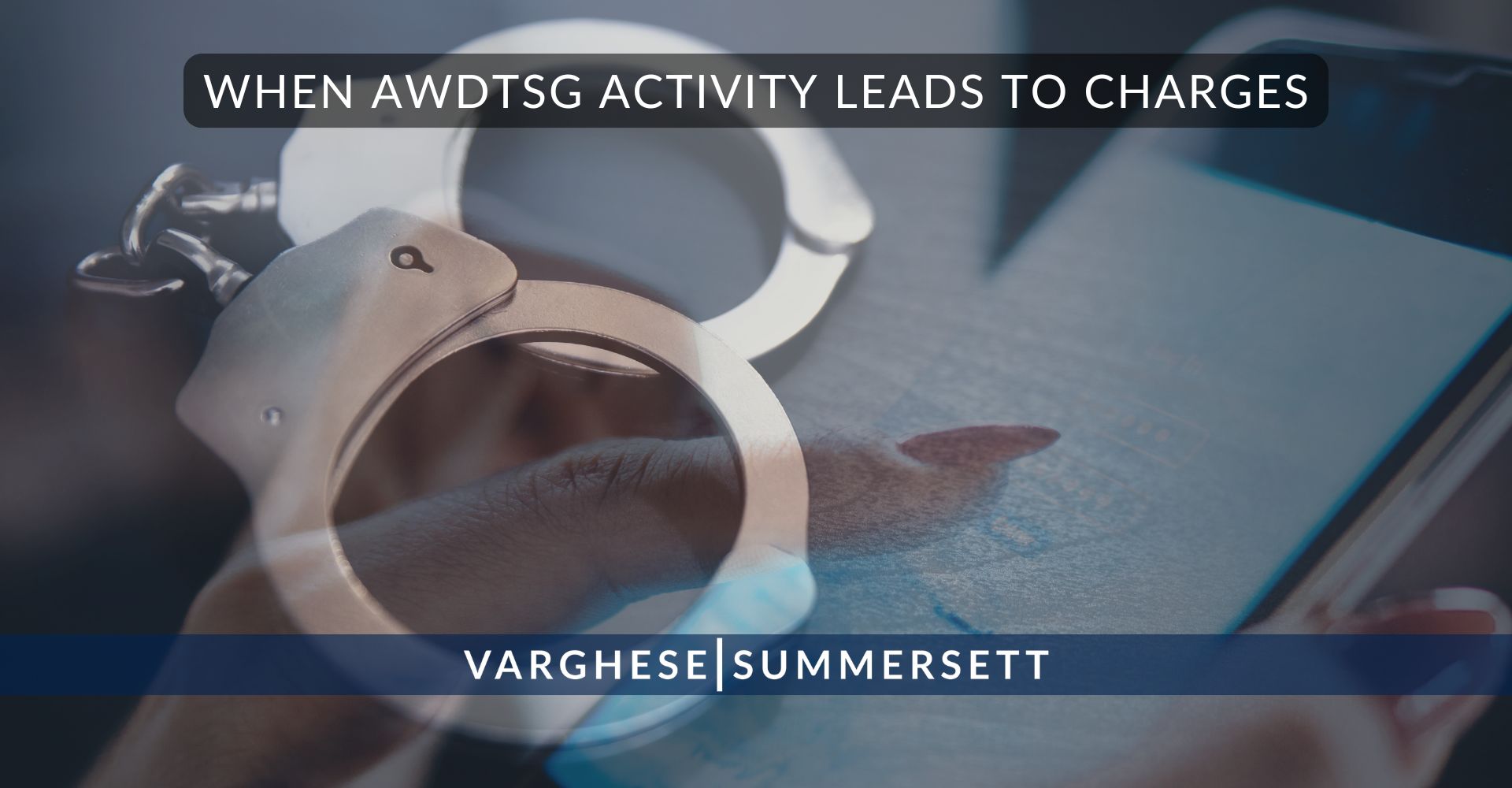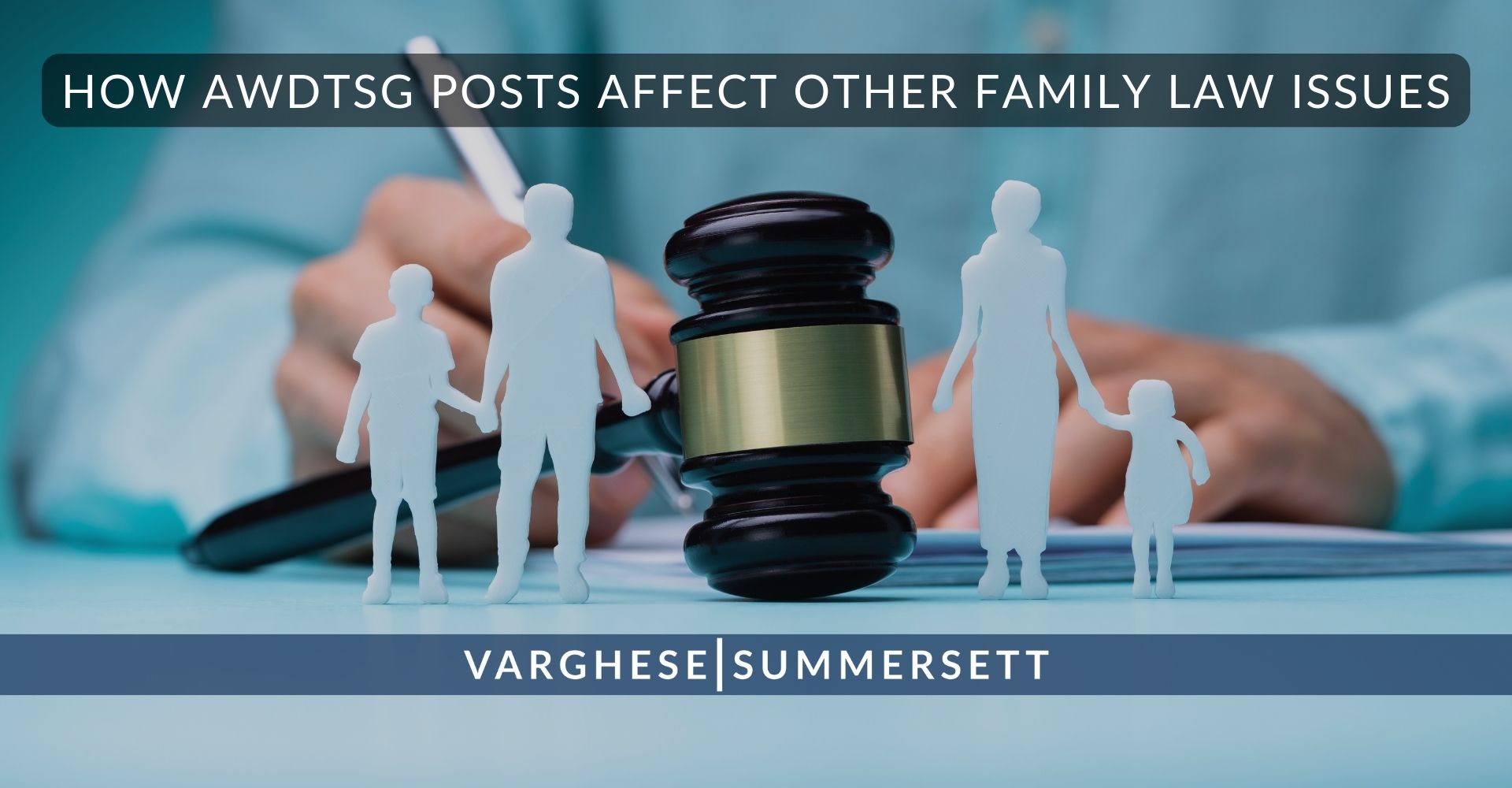The Legal Implications of “Are We Dating the Same Guy?”
“Are We Dating the Same Guy” (AWDTSG) started as a way for women to vet potential dates. It has become something far more legally significant. With over 8 million members across more than 200 cities, these private Facebook groups and the standalone app have evolved into platforms where reputations are made and destroyed, marriages unravel, and lawsuits are born.
If you’re going through a divorce in Texas, involved in a custody dispute, considering posting about someone, or just discovered you’re the subject of a thread, you need to understand the legal landscape. What happens in these groups doesn’t stay in these groups. It ends up in courtrooms, affects custody decisions, triggers defamation lawsuits, and sometimes leads to criminal charges.
This guide covers every legal angle of AWDTSG from a Texas lawyer’s perspective: using it as evidence in your divorce, the defamation risks of posting, what to do if you’re posted about, and the criminal exposure that can arise from this platform.

What AWDTSG Is and How It Works
AWDTSG is a network of private, city‑based Facebook groups—and a newer companion app—where women share information about men they are dating or considering. The first group launched in New York City in 2022 and quickly grew into hundreds of city‑specific communities across the United States and abroad.
What began with simple posts like “Is he actually single?” has evolved into a broader venue for sharing allegations and personal accounts about men’s behavior. Members often post photos or dating app screenshots alongside questions or warnings, prompting others to respond with their own experiences, including claims of cheating, emotional abuse, or other serious misconduct.
Multiple AWDTSG and AWDTSG‑style groups operate in Texas, including communities that cover the Dallas–Fort Worth metro area, Houston, Austin, and San Antonio and even small markets like San Angelo and Midland.
Some operate under the official AWDTSG umbrella, while others use names like “Is This The Same Guy?” with varying levels of moderation.
Texas AWDTSG Groups
| Group Name |
Areas Covered |
Estimated Members |
Notes |
| Are We Dating The Same Guy? | Dallas / Fort Worth / DFW |
Dallas, Fort Worth, DFW Metroplex |
Tens of thousands |
Main official DFW group |
| Are We Dating The Same Guy? | DFW (Secondary) |
Dallas, Fort Worth, DFW Metroplex |
Thousands |
Secondary/backup DFW group |
| Is This The Same Guy? UNCENSORED – Dallas / Fort Worth / DFW |
Dallas, Fort Worth, DFW Metroplex |
Thousands |
Looser moderation; higher legal risk |
| Are We Dating The Same Guy Dallas, All Of Texas, New York, Atlanta & L.A. |
Dallas, Statewide Texas, Multi-city |
Tens of thousands |
Multi-city coverage |
| Is This The Same Guy? Houston, Austin & San Antonio |
Houston, Austin, San Antonio |
Tens of thousands |
Covers multiple major Texas metros |
| Are We Dating The Same Guy Austin TX Edition |
Austin |
8,500+ |
Austin-specific group |
| Are We Dating The Same Guy? | SafeTea | San Angelo / Midland / TX |
San Angelo, Midland, West Texas |
Thousands |
West Texas coverage |
Note: These are private groups. Member counts fluctuate and are estimates based on comparable markets. For reference, the New York group has over 136,000 members, and the Los Angeles group has approximately 52,000. The main AWDTSG network reports 8.1 million members across all groups worldwide.
The “uncensored” variants deserve special attention. These groups often have looser rules about what can be posted, including full names, employers, and detailed personal information. From a legal perspective, these groups present the highest risk for both posters and subjects because they’re more likely to cross the line into actionable defamation or harassment.
What Group Rules Don’t Tell You
Most AWDTSG groups require screening questions before you can join. Applicants typically confirm their gender, location, and intent, then agree not to share screenshots outside the group. But here’s what those rules don’t tell you: moderators check compliance with group guidelines, not factual accuracy.
This means false or exaggerated information can spread to thousands of people before anyone questions whether it’s true. The rules exist to protect the group from being shut down by Facebook, not to protect you from legal liability if you post something defamatory.

Finding Your Spouse on AWDTSG: Evidence in Your Divorce
For many people, AWDTSG becomes relevant when they discover their spouse has been living a double life. Someone sends you a screenshot. Your spouse’s face is plastered across a Facebook group, with dozens of women sharing stories about dates, lies, and relationships that overlapped with your marriage. Or you discover your spouse is an active member of these groups, posting photos of men they’ve been seeing while still married to you.
This discovery can be a turning point in your divorce case. The posts, comments, and screenshots could become powerful evidence affecting property division, custody decisions, and your spouse’s credibility in court. But only if you handle it correctly.
Two Ways Your Spouse Appears
Being discussed by other women. This is often how betrayed spouses first learn the full extent of their partner’s infidelity. Women post photos asking, “Anyone know this guy?” and the responses reveal a pattern of dating, lying about being single, and carrying on relationships during your marriage. You might see screenshots of dating app profiles, text messages showing romantic conversations, multiple women confirming they dated your spouse during specific time periods, detailed accounts of lies about marital status, and photos from dates or trips you knew nothing about.
Actively posting in these groups. Sometimes the discovery goes the other way. Your spouse is a member, actively posting photos of men they’re dating or asking other women about potential matches. This shows they weren’t passively receiving attention but actively pursuing new relationships while married. Their posts reveal timelines, intentions, and sometimes direct admissions about the marriage.
Using AWDTSG Evidence for Property Division
Texas allows both no-fault and fault-based divorce. While many divorces proceed on no-fault grounds, proving fault can significantly impact property division. Under Texas Family Code § 6.003, adultery is grounds for divorce. More importantly, proven adultery can result in a disproportionate division of the marital estate in your favor.
Texas is a community property state, but judges have discretion to divide property in a way that is “just and right,” and fault is one factor they consider. AWDTSG posts can provide dated evidence of when affairs began, corroboration from multiple witnesses, documentation of money spent on dating and maintaining a double life, and proof that your spouse lied about being married.
Impact on Custody and Support
The best interest of the child is the primary consideration in Texas custody cases. A parent who maintained an elaborate double life demonstrated a pattern of deception that speaks to their character and judgment. Evidence that your spouse introduced children to dating partners or exposed them to instability matters. Courts want to know that the parent awarded conservatorship will make good decisions.
Adultery can also affect spousal maintenance determinations. If your spouse is seeking maintenance from you, evidence of their adultery may reduce or eliminate their eligibility.
How to Preserve This Evidence
The evidence you’re looking at could disappear at any moment. Posts get deleted, groups go private, and your spouse might scrub their online presence once they realize you know. Take screenshots of everything immediately: the post itself, all comments, the poster’s profile, the group name and member count, and any visible dates and times.
Use screen recording video that scrolls through entire threads to capture context. Note the exact date and time you captured the screenshots. If possible, have a witness present or have your attorney’s office document the evidence independently. Texas Rules of Evidence require authentication before social media evidence is admitted, so the more documentation you have about how and when you captured it, the stronger your position.
Don’t confront your spouse until you’ve preserved everything and consulted with your attorney. Once they know you’ve found this evidence, they may coordinate with others to remove content.
Strategic Use in Your Case
Having evidence and using it effectively are different things. Sometimes the most powerful use is in settlement negotiations. Your spouse may be highly motivated to settle favorably rather than have detailed testimony about their dating life become part of the public record.
AWDTSG evidence can also inform discovery questions. Your attorney might subpoena records, depose the women who posted about your spouse, or use the evidence to catch your spouse in lies during their deposition. If your spouse denies the affair under oath and you have AWDTSG documentation proving otherwise, their credibility on every issue in the case is damaged.

Texas Defamation Law and AWDTSG
Texas defamation law applies to AWDTSG posts just like any other public statement. Under Texas Civil Practice and Remedies Code Chapter 73, defamation occurs when someone publishes a false statement of fact about another person that damages their reputation. The key elements are falsity, publication, identification, fault, and harm.
When Posts Cross the Legal Line
A post becomes potentially actionable when it asserts or clearly implies specific, provably false facts. Saying someone “felt rude” on a date is opinion. Saying someone “beats his kids” or “knowingly spreads STDs” is a factual claim that can be proven true or false. The distinction matters enormously in court.
Certain categories of false statements are considered defamation “per se” under Texas law, meaning damages are presumed without requiring proof of specific harm. These include false accusations of criminal conduct, sexual misconduct, professional incompetence, and having a loathsome disease. AWDTSG posts frequently venture into this territory.
Posts are more likely actionable when they use identifying information like full names, photos, workplace details, or unique identifying characteristics. They’re also more dangerous when they reach a large audience, which is almost guaranteed in metro groups with tens of thousands of members. Evidence of recklessness or actual malice, such as text messages showing the poster knew claims were false, strengthens a defamation case considerably.
What’s Less Likely to Be Actionable
Pure opinion based on disclosed facts receives more protection. A post stating, “He told me he was single, but I later found his wife’s Facebook; in my opinion, he’s a liar” is structured as an opinion tied to specific facts the reader can evaluate. Vague statements without clear identification or statements limited to subjective value judgments (“I didn’t vibe with him”) are harder to sue over successfully.
Courts that have examined AWDTSG content have sometimes dismissed claims involving terms like “psycho” or descriptions of ghosting as non-actionable opinion. But repeated implications of serious misconduct, especially using loaded terms like “predator” or “abuser” without factual basis, can cross into actionable territory.
Real Litigation Over AWDTSG Posts
The legal risks aren’t hypothetical. In Los Angeles, a man sued multiple women for defamation, libel, and sex-based discrimination over AWDTSG posts, seeking approximately $2 million in damages. While one defendant prevailed on an anti-SLAPP motion, the case demonstrates how quickly posters can find themselves in expensive litigation.
In Illinois, a court dismissed claims against an AWDTSG group and its moderators, treating certain posts as opinion or non-actionable. But the court also warned that repeated implications of serious misconduct could cross the line. Courts are still working through how to apply traditional defamation principles to this new forum.

If You’re Thinking About Posting: Seven Questions to Ask First
Before posting anything in an AWDTSG group, treat it like sworn testimony. The same facts can later support or undermine a divorce, custody, or defamation case. Ask yourself these questions:
Am I stating a verifiable fact or expressing an opinion? Texas defamation law requires a false statement of fact. Pure opinion (“I felt unsafe on our date”) is generally protected. But “He beats his kids” is a factual claim that can be proven true or false. If a judge could say “true or false” to what you’re writing, you’re in dangerous territory.
Do I actually know this is true, and can I prove it? Truth is a complete defense to defamation. If your claims are accurate and you can back them up with texts, photos, or witnesses, your legal risk drops dramatically. Repeating rumors or unverified information you heard from someone else can be viewed as negligent or reckless.
Am I accusing him of a crime or sexual misconduct? False accusations of criminal conduct or sexual misconduct are classic defamation per se categories. They allow recovery without specific proof of economic loss. Labeling someone a rapist, child molester, or domestic abuser without clear, supportable facts is exactly the type of content that triggers high-dollar lawsuits.
Can he be clearly identified from what I’m posting? Using names, workplace information, photos, or unique details makes it easy to prove the post is “about” that person, a required element in Texas defamation claims. The more identifying information you include, the stronger a potential plaintiff’s case becomes.
Could this hurt his job or business reputation? Texas defamation law pays particular attention to statements harming someone’s profession or business. In divorce and custody cases, attacks on the other parent’s reputation can directly affect earning capacity, support calculations, and standing in the community.
Am I in the middle of a divorce, custody, or protective order case? Social media posts are routine evidence in Texas family courts. False or vindictive posts can undermine your credibility, be framed as harassment or attempted parental alienation, and violate standing orders that restrict posting about the divorce or the other party.
Would I stand behind this on the witness stand? Assume the other side screenshots everything. If you wouldn’t repeat the story under oath in front of a judge, don’t publish it to thousands of strangers. Even if you’re never sued, walking back a dramatic story in deposition can devastate your credibility on every other contested issue in your case.

If You’re Posted About: Do You Have a Case?
Not every unflattering AWDTSG post gives you a lawsuit. Most don’t. Before you call a lawyer, understand what’s actually actionable under Texas defamation law.
What’s NOT Actionable
Being called a “liar,” “cheater,” “narcissist,” or “red flag” isn’t defamation. Neither is someone saying you ghosted them, wasted their time, or gave them bad vibes. These are opinions or vague characterizations that courts consistently refuse to treat as actionable statements of fact.
If someone posts your photo and says, “avoid this one, total player” or “he led me on for months,” you probably don’t have a case. It stings, but Texas courts require false statements of specific, verifiable facts—not hurt feelings or damaged pride.
What IS Potentially Actionable
You may have a viable defamation claim if someone posted false statements accusing you of:
Criminal conduct. False claims that you committed assault, domestic violence, rape, sexual assault, theft, fraud, drug dealing, or any other crime.
Sexual misconduct or predatory behavior. False accusations that you’re a rapist, predator, or child molester. False claims of revenge porn, sexual coercion, or non-consensual acts.
Having a communicable disease. False statements that you have HIV, herpes, or other STDs, particularly combined with claims you knowingly exposed partners.
Professional misconduct or incompetence. False claims about your job performance, professional ethics, or conduct that could get you fired or cost you business.
Specific criminal history. False claims that you have a criminal record, are a registered sex offender, or have been arrested for specific crimes.
You Also Need Damages
Even if someone made a provably false accusation, you need to show it actually harmed you. There are two paths:
Defamation per se. If the false statement accuses you of a crime, sexual misconduct, having a loathsome disease, or professional incompetence, Texas law presumes damages. You don’t have to prove specific financial loss—the nature of the accusation itself is considered inherently damaging.
Everything else requires proof of actual harm. If the false statement doesn’t fall into those categories, you must demonstrate real-world consequences: you lost your job, lost a client or business opportunity, lost a relationship, were denied housing, or suffered other measurable harm directly caused by the post. “I’m embarrassed” or “my friends saw it” isn’t enough.
The Bottom Line
Before you contact us, ask yourself two questions:
1. Did someone make a specific, false factual claim about me—not just call me names or share opinions?
2. Did it actually cost me something—a job, income, relationship, professional standing—OR was it an accusation of crime, sexual misconduct, disease, or professional wrongdoing (where damages are presumed)?
If you can’t answer yes to both, you don’t have a viable case. If you can, screenshot everything and call us.

The Criminal Side: When AWDTSG Activity Leads to Charges
Sometimes AWDTSG activity intersects with criminal law. Accusations in these groups can trigger investigations for stalking, harassment, or protective order violations. Conversely, aggressive posting behavior can result in criminal charges against the poster.
Harassment
Under Texas Penal Code § 42.07, harassment occurs when someone initiates communication with intent to harass, annoy, alarm, abuse, torment, or embarrass another person. Coordinated campaigns to post about someone or encourage others to contact them could support harassment charges.
Stalking
Stalking under Texas Penal Code § 42.072 involves conduct directed at a specific person that would cause a reasonable person to fear bodily injury, death, or that an offense will be committed against them or their property. In one Tarrant County stalking case, we negotiated a plea to 3-year deferred adjudication with ankle monitor review after one year, avoiding the harsher consequences our client initially faced.
Protective Order Violations
Protective orders add another layer of complexity. Violating a protective order is a criminal offense, and repeated violations within a year can be charged as a felony. In our analysis of Tarrant County bond data, the average bond for violation of a protective order was $3,121, and violations occurring two or more times within 12 months averaged $52,894 in bond. These are serious charges with significant consequences.

How AWDTSG Posts Affect Other Family Law Issues
Property Division
Texas is a community property state, and judges have discretion in dividing the marital estate. Evidence of bad behavior, including vindictive or defamatory social media activity, can influence how a judge views the “just and right” division of property. False accusations made publicly can also affect settlement negotiations, as the accused party may be more motivated to resolve the case quickly to stop the reputational damage.
Child Custody and Conservatorship
The best interest of the child is the primary consideration in Texas custody cases. A parent who makes false public accusations against the other parent demonstrates poor judgment and potentially parental alienation behavior. Posts that reveal information about children, expose them to conflict, or violate court orders can significantly impact custody decisions.
On the flip side, documented patterns of concerning behavior by the other parent, properly verified and presented, can support arguments for modified custody arrangements or supervised visitation.
Spousal Support and Child Support
False claims about a spouse’s income, employment, or professional reputation can affect child support and spousal maintenance calculations. If defamatory posts actually result in job loss or damaged earning capacity, that harm may be considered in calculating support obligations.
Protecting Yourself During Divorce
The safest approach during any family law proceeding is to avoid social media activity related to your case entirely. Don’t post about your spouse, your divorce, your custody situation, or the other party’s new relationships. Don’t join groups like AWDTSG while litigation is pending. And don’t respond to posts about you without legal guidance.
If you’re already a member of these groups, consider whether staying is worth the risk. Even comments or reactions to others’ posts can be used to show your mindset, judgment, or involvement in this type of community.
Document everything your spouse or co-parent posts, but do so quietly. Have a trusted friend or family member take screenshots if needed. Your attorney can advise on when and how to use this evidence strategically rather than reactively.
Many Texas family courts use standing orders that restrict what parties can post about each other or the litigation on social media. Violating these orders can result in sanctions, damage your credibility with the judge, or hurt your position in custody disputes. If you’re currently involved in any family law matter, assume that anything you post online could end up as an exhibit in your case.

What to Expect From Varghese Summersett
Varghese Summersett handles complex family law matters throughout Texas from offices in Fort Worth, Dallas, Houston, and Southlake. Our team of legal professionals includes attorneys experienced in both the family law and criminal law aspects of cases involving social media evidence, protective orders, and defamation claims.
When you face a situation involving AWDTSG or similar social media complications, we provide strategic assessment of your legal exposure and options, coordination between family law and criminal defense when both are implicated, aggressive protection of your reputation and parental rights, and practical guidance on documenting and preserving evidence.
Whether you’ve discovered your spouse on AWDTSG and need to leverage that evidence, you’re facing false accusations and need to protect your reputation, you want to understand the risks before posting, or you’re defending against criminal charges arising from protective order or harassment allegations, our attorneys have the experience to guide you through these complicated intersections of family law, civil liability, and criminal exposure.

Frequently Asked Questions
Can AWDTSG posts be used as evidence of adultery in my Texas divorce?
Yes. Posts showing your spouse was dating, maintaining romantic relationships, or lying about being married can support adultery claims under Texas Family Code § 6.003. This evidence must be properly preserved and authenticated, but social media posts are routinely admitted in Texas family courts. Proven adultery can result in a disproportionate property division in your favor.
What should I do immediately after discovering my spouse on AWDTSG?
Screenshot everything before it disappears, including posts, comments, the poster’s profile, and group information. Note the dates and times. Do not confront your spouse or tell anyone who might warn them. Contact a family law attorney before taking any action. The evidence could be powerful in your case, but only if preserved properly and used strategically.
Can I sue someone for posting about me in an AWDTSG group?
Potentially, yes. If the post contains false statements of fact (not just opinion), clearly identifies you, was made negligently or recklessly, and caused damage to your reputation, you may have a defamation claim under Texas law. Posts accusing you of crimes, sexual misconduct, or professional incompetence are particularly actionable. However, truth is a complete defense, and some statements may be protected as opinion.
Can I post about my cheating spouse in AWDTSG to warn other women?
This is legally risky during divorce proceedings. Even truthful posts can violate court standing orders, damage your credibility with the judge, or invite counter-claims. If you post false or exaggerated information, you could face defamation liability. The safest approach is letting your evidence work through proper legal channels rather than social media.
Will AWDTSG posts affect my divorce or custody case?
Very likely. Texas family courts routinely admit social media evidence. Posts by your spouse can show their judgment and credibility. Posts about you, true or false, can affect negotiations and your standing. Your own posts can be used against you. Many courts have standing orders restricting social media activity during litigation, and violations can result in sanctions.
What if my spouse posts false information about me in AWDTSG?
Document everything immediately with timestamped screenshots. False statements of fact may support defamation claims and can be used in your divorce to demonstrate your spouse’s bad faith, harassment, or poor judgment. Your attorney can pursue removal through platform reports, cease-and-desist letters, and potentially court orders limiting future posts.
Can posting in AWDTSG lead to criminal charges?
In some circumstances, yes. Repeated contact intended to harass could support harassment charges under Texas Penal Code § 42.07. Conduct causing fear of harm could lead to stalking charges. If your posts violate a protective order, you face criminal liability. Even if you don’t face criminal charges yourself, false accusations in posts could expose you to civil defamation liability.

Protect What Matters Most
Whether you’ve discovered your spouse on AWDTSG, you’re facing false accusations in these groups, you need guidance before posting, or you’re dealing with criminal allegations tied to social media activity, call Varghese Summersett at (817) 203-2220. Our experienced attorneys understand every legal angle of these platforms and can help you protect your rights, your reputation, and your future.
Texas Family Law Practice Areas
Comprehensive family law services across Texas